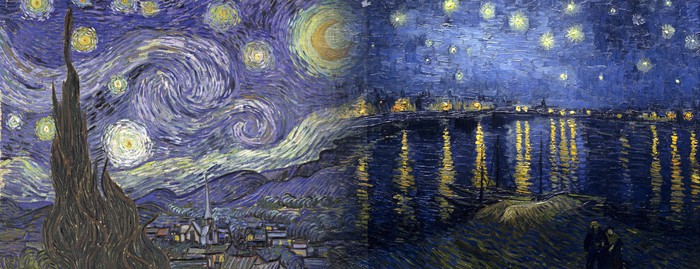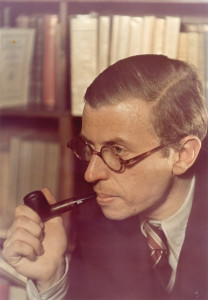The Existentialists believe that there is no order in the universe and no objective rights or wrongs. Individuals are free to create their own lives according to the choices they make and must take responsibility for their actions.
Kierkegaard is seen by many as the father of existentialism because of his attack on Hegel’s view that individuals are less important than their historical context. The Danish philosopher rejected Hegel’s system of an unfolding process, which left people with little or no free will. According to Kierkegaard, philosophy begins and ends with individual human existence. He believed that people are free to choose their existence and that it is morally wrong to shirk this responsibility. He urged people to be true to themselves when making life’s choices, which he viewed as leaps of faith.
Sartre studied phenomenology with Husserl and was also influenced by the ideas of Heidegger. Sartre developed phenomenology into existentialism. Heidegger had talked about “inauthentic”people, meaning those who refuse to accept responsibility for their existence. Heidegger felt that facing up to the finality of death ought to make people value their existence and make something of their lives.
For Sartre, true existentialists are “authentic”people. They face reality head on and take control of their lives. The ability to choose and act is the basis of human freedom. Sartre rejected the idea of an external authority, such as God or cosmic reason, to guide people. He saw this as an illusion created to comfort desperate minds. Accepting responsibility for choices can make the moment of decision full of anxiety. For Sartre, this was the price of freedom.
Sartre explored his ideas in “Being and Nothingness”, his most famous book. The title reflects two modes of existence that Sartre had identified in the world. A thing that exists just by “being” there, like a pebble on a beach, exists “in itself”. By contrast, consciousness is “no thing”. It exists “for itself”. It is capable of becoming involved in the world. Most people act as if they are pebbles on the beach, unable to change themselves or the world around them. Existentialists challenge the limits of their situations by living “for themselves”.


